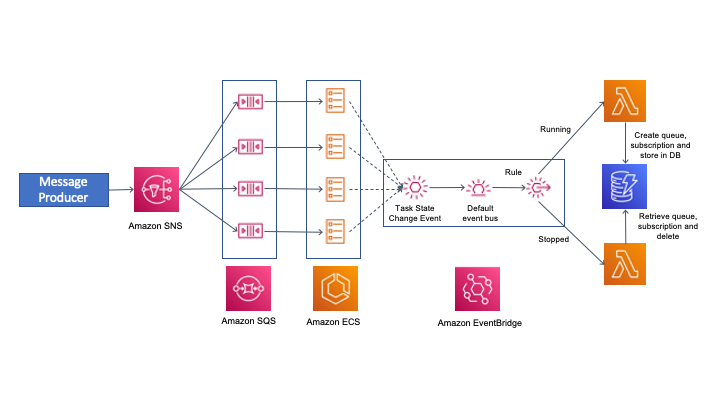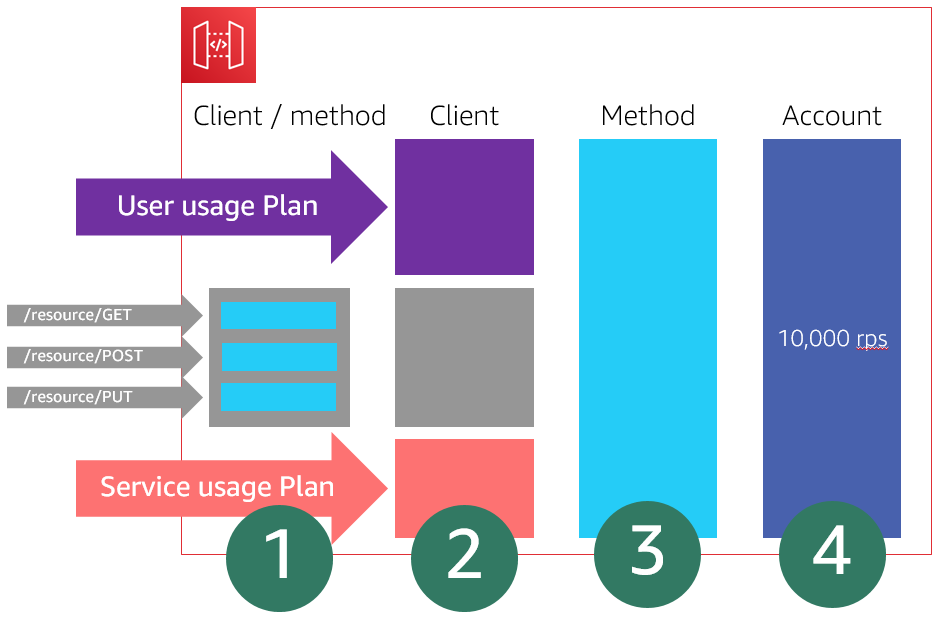AWS Compute Blog
Category: Amazon Simple Notification Service (SNS)
Using certificate-based authentication for iOS applications with Amazon SNS
This blog post is written by Yashlin Naidoo, Arnav Thakur, Kim Read, Guilherme Silva. Amazon SNS enables you to send notifications to a mobile push endpoint using a platform application endpoint by dispatching the notification on your application’s behalf. Push notifications for iOS apps are sent using Apple Push Notification Service (APNs). To send push […]
Introducing Amazon CodeWhisperer in the AWS Lambda console (In preview)
This blog post is written by Mark Richman, Senior Solutions Architect. Today, AWS is launching a new capability to integrate the Amazon CodeWhisperer experience with the AWS Lambda console code editor. Amazon CodeWhisperer is a machine learning (ML)–powered service that helps improve developer productivity. It generates code recommendations based on their code comments written in […]
ICYMI: Serverless Q4 2021
Welcome to the 16th edition of the AWS Serverless ICYMI (in case you missed it) quarterly recap. Every quarter, we share all of the most recent product launches, feature enhancements, blog posts, webinars, Twitch live streams, and other interesting things that you might have missed! In case you missed our last ICYMI, check out what […]
Publishing messages in batch to Amazon SNS topics
This post is written by Heeki Park (Principal Solutions Architect, Serverless Specialist), Marc Pinaud (Senior Product Manager, Amazon SNS), Amir Eldesoky (Software Development Engineer, Amazon SNS), Jack Li (Software Development Engineer, Amazon SNS), and William Nguyen (Software Development Engineer, Amazon SNS). Today, we are announcing the ability for AWS customers to publish messages in batch […]
Token-based authentication for iOS applications with Amazon SNS
This post is co-written by Karen Hong, Software Development Engineer, AWS Messaging. To use Amazon SNS to send mobile push notifications, you must provide a set of credentials for connecting to the supported push notification service (see prerequisites for push). For the Apple Push Notification service (APNs), SNS now supports using token-based authentication (.p8), in […]
Building dynamic Amazon SNS subscriptions for auto scaling container workloads
This blog shows an event driven approach to handling dynamic SNS subscription requirements. It relies on the ECS service events to trigger appropriate Lambda functions. These create the subscription queue, subscribe it to a topic, and delete it once the container instance is terminated.
Sending mobile push notifications and managing device tokens with serverless applications
This blog shows how to deploy a serverless solution for validating and managing SNS platform endpoints and tokens. To publish push notifications successfully, use SNS to check the endpoint attribute and ensure it is mapped to the correct token and the endpoint is enabled.
Building well-architected serverless applications: Building in resiliency – part 2
This series of blog posts uses the AWS Well-Architected Tool with the Serverless Lens to help customers build and operate applications using best practices. In each post, I address the serverless-specific questions identified by the Serverless Lens along with the recommended best practices. See the introduction post for a table of contents and explanation of the example application. Reliability question REL2: […]
Building well-architected serverless applications: Building in resiliency – part 1
This series of blog posts uses the AWS Well-Architected Tool with the Serverless Lens to help customers build and operate applications using best practices. In each post, I address the serverless-specific questions identified by the Serverless Lens along with the recommended best practices. See the introduction post for a table of contents and explanation of the example application. Reliability question REL2: […]
Building well-architected serverless applications: Regulating inbound request rates – part 1
This series of blog posts uses the AWS Well-Architected Tool with the Serverless Lens to help customers build and operate applications using best practices. In each post, I address the serverless-specific questions identified by the Serverless Lens along with the recommended best practices. See the introduction post for a table of contents and explanation of the example application. Reliability question REL1: […]









